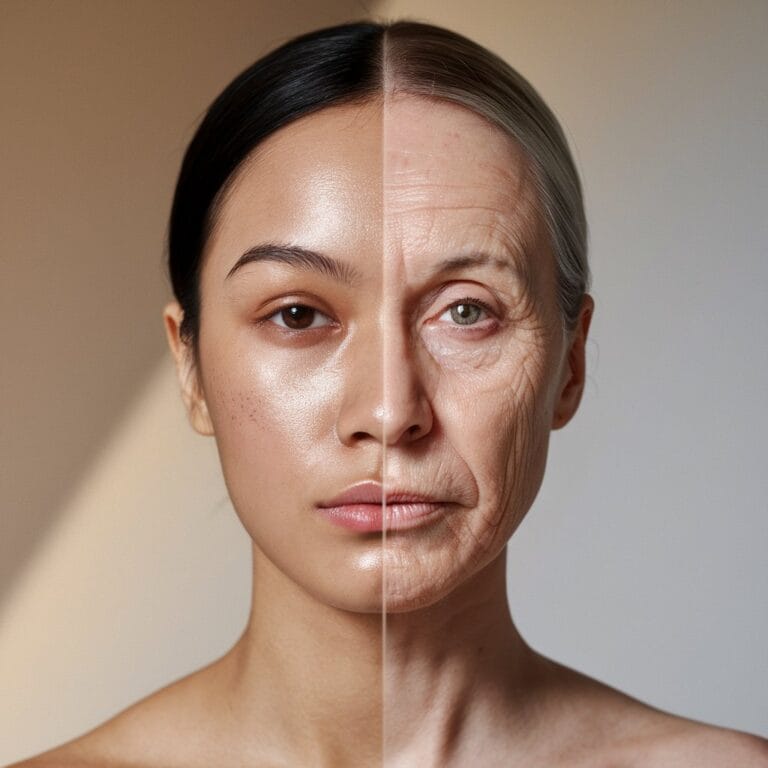FREE SHIPPING OVER $50
New Study Reveals 12 Ingredients to Avoid If You Want to Look Younger
The quest for youthful skin has always been a hot topic, and while serums and moisturizers play their role, what you put into your body can be just as important. Recent studies have identified certain ingredients in our daily diets that can accelerate aging and wreak havoc on our skin. If you’re looking to maintain a youthful appearance, these are the 12 ingredients you should avoid.
Ingredients that Age Skin
1. Sugar: The Collagen Killer

Sugar is infamous for its role in aging, primarily due to a process called glycation. When you consume sugar, it binds to proteins like collagen, causing them to become stiff and malformed. Collagen is crucial for youthful, firm skin, and when it’s damaged, wrinkles and fine lines can develop faster.
Negative Effects:
- Damages collagen, leading to loss of skin elasticity.
- Increases the appearance of wrinkles and fine lines.
- Causes dull and saggy skin over time.
Healthier Alternatives:
- Natural sweeteners like stevia or monk fruit.
- Fruit-based sweeteners (dates, applesauce).
- Reducing overall sweetener intake and choosing whole fruits for natural sweetness.
Research published in the British Journal of Dermatology found that glycation plays a significant role in skin aging, as it damages skin elasticity and accelerates the formation of wrinkles.
2. Trans Fats: Clogged Arteries, Clogged Skin
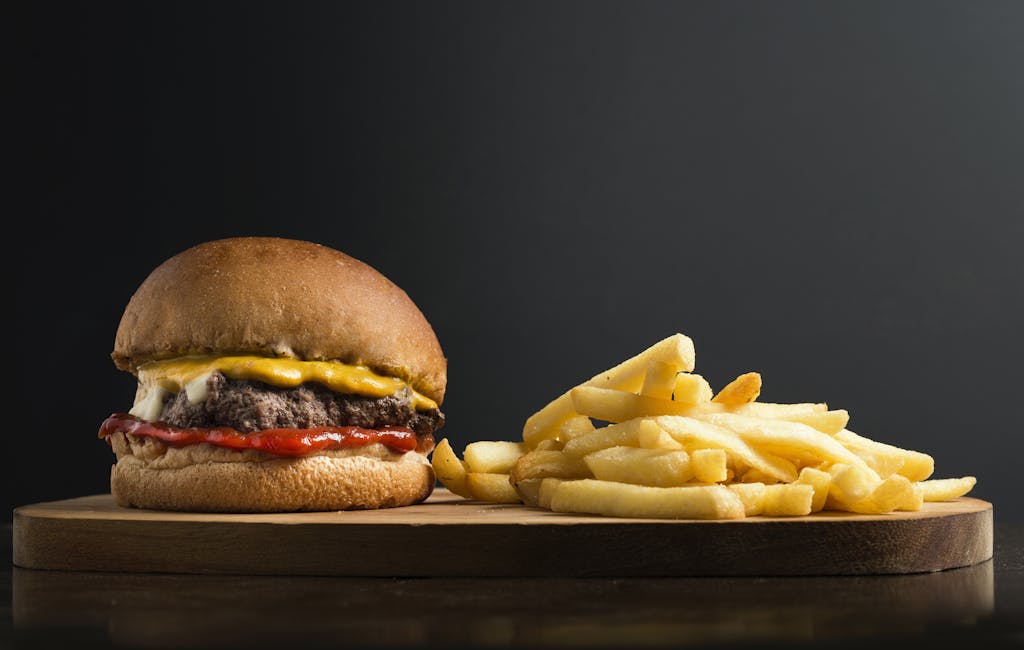
Trans fats, often found in processed foods, can promote inflammation in the body. Chronic inflammation has been linked to a variety of age-related conditions, including wrinkles and sagging skin.
Negative Effects:
- Triggers chronic inflammation, leading to skin puffiness and redness.
- Causes oxidative stress, damaging skin cells and promoting aging.
- Leads to a higher risk of heart disease, which can negatively impact skin health.
Healthier Alternatives:
- Use healthy fats like olive oil, avocado oil, or coconut oil.
- Replace margarine with grass-fed butter or ghee.
- Opt for whole, unprocessed foods.
A 2019 study showed that trans fats not only harm the cardiovascular system but can also contribute to oxidative stress, leading to premature aging.
3. Salt: Puffy Eyes and Dehydration
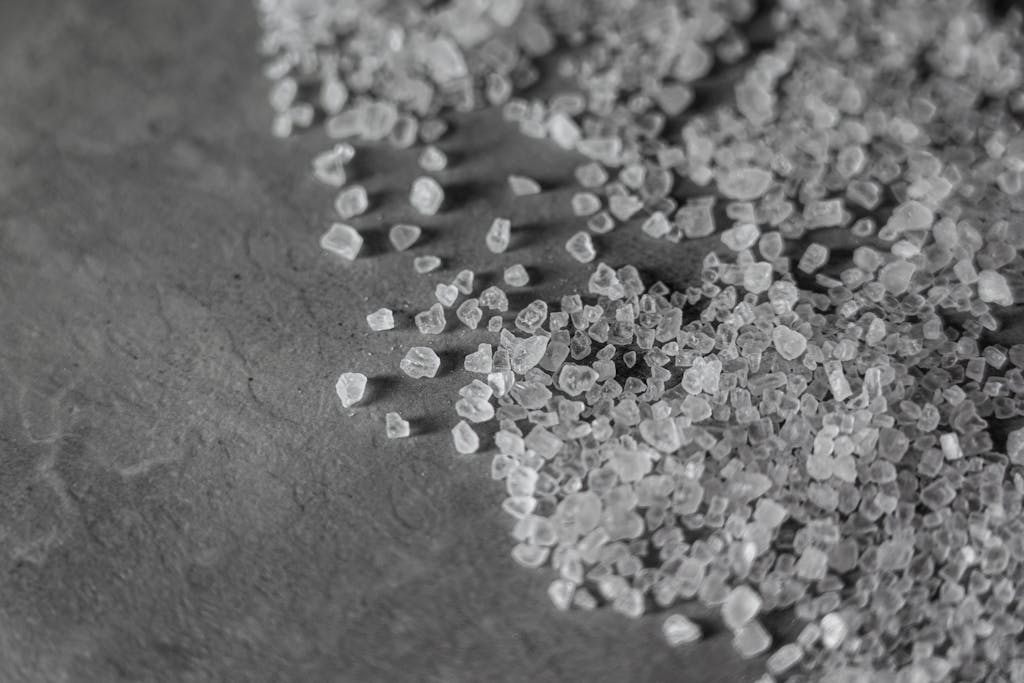
High sodium intake leads to water retention, which can manifest as puffiness, especially around the eyes. Excess salt can also dehydrate the skin, making it look dry and less supple.
Negative Effects:
- Causes puffiness and bags under the eyes.
- Dehydrates the skin, making it look dull and dry.
- May lead to high blood pressure, which negatively affects skin health.
Healthier Alternatives:
- Opt for herbs and spices to flavor your meals.
- Use potassium-based salt substitutes.
- Reduce processed and packaged foods, which are often high in sodium.
4. Alcohol: Dehydration and Inflammation
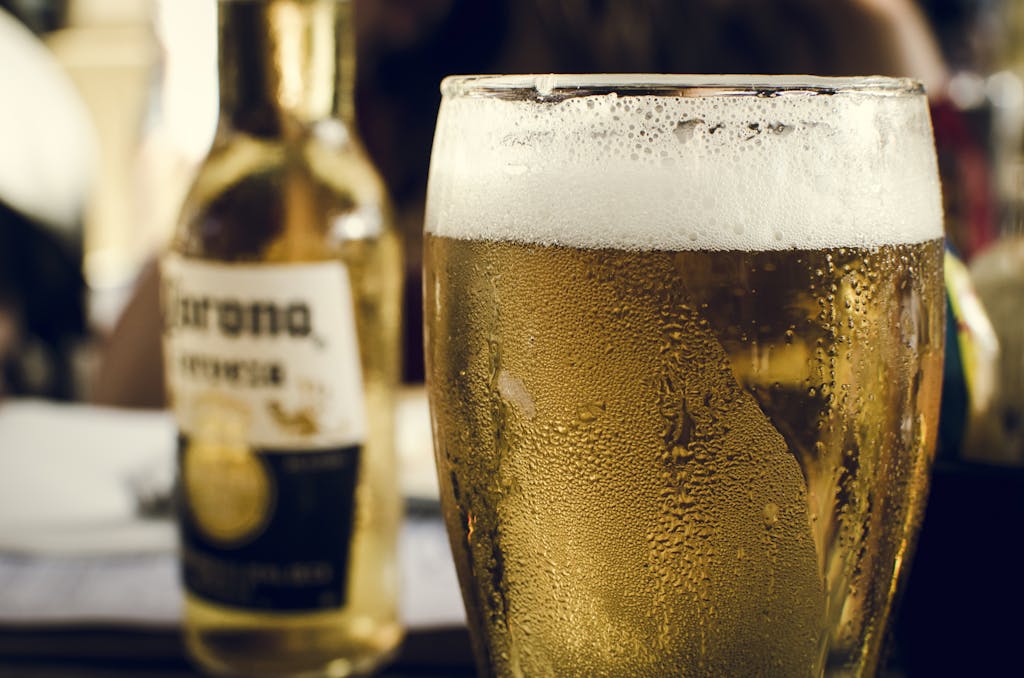
Alcohol dehydrates your skin, making it more prone to wrinkles and dullness. It also dilates blood vessels, which can lead to broken capillaries and a flushed appearance over time.
Negative Effects:
- Dehydrates skin, making wrinkles and fine lines more noticeable.
- Causes inflammation, leading to a flushed, uneven skin tone.
- Damages blood vessels, resulting in broken capillaries over time.
Healthier Alternatives:
- Choose non-alcoholic beverages like sparkling water with a splash of fruit juice.
- Limit alcohol intake to occasional use, with plenty of water in between.
- Opt for red wine (in moderation) which contains antioxidants like resveratrol.
A study concluded that frequent alcohol consumption increases skin inflammation and accelerates the aging process.
5. Processed Meats: Nitrates and Sulfates
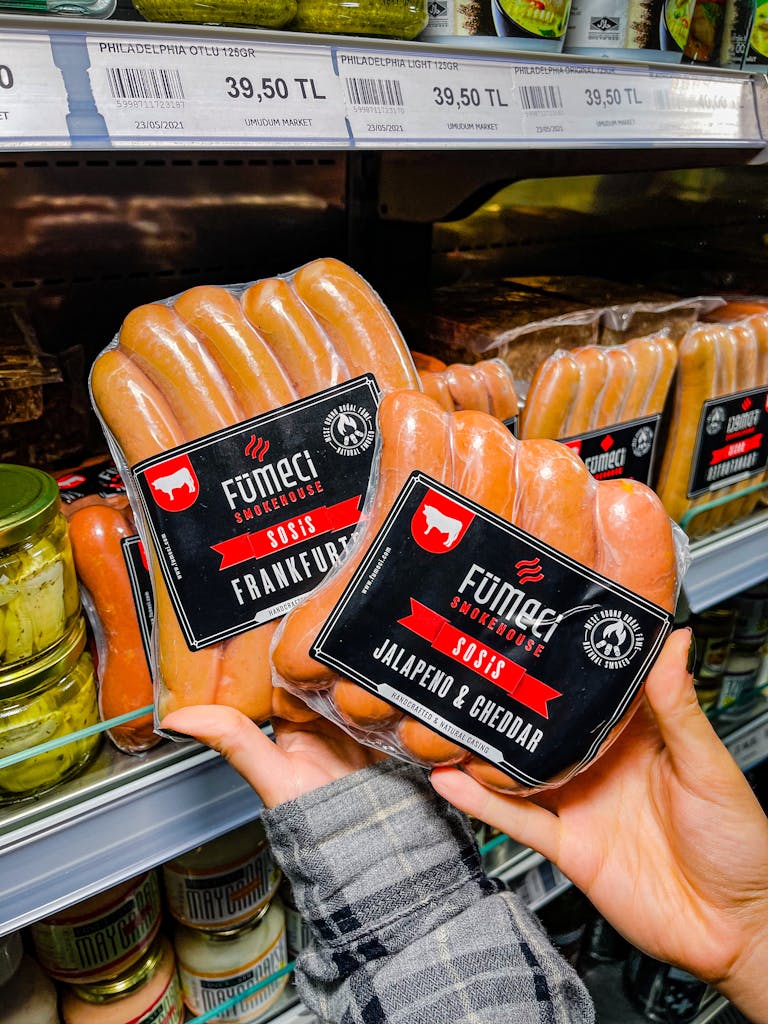
Processed meats like bacon, sausages, and deli meats are packed with nitrates and sulfates, which can trigger inflammation and cause oxidative stress. These meats are also high in sodium, contributing to puffiness and dehydration.
Negative Effects:
- Promotes inflammation, leading to skin aging.
- Causes oxidative stress, which can damage collagen and elastin.
- High sodium content leads to water retention and puffy skin.
Healthier Alternatives:
- Opt for unprocessed, organic meats or plant-based protein alternatives.
- Include lean cuts of fresh meat like chicken breast or turkey.
- Use tofu, tempeh, or legumes as protein sources.
This study states that the high levels of preservatives and chemicals in processed meats can promote skin aging and increase the risk of chronic diseases.
6. Fried Foods: Advanced Glycation End Products (AGEs)
Fried foods are loaded with AGEs, which are harmful compounds that form when protein or fat combines with sugar. AGEs can accelerate skin aging by damaging collagen and elastin, which are crucial for skin elasticity.
Negative Effects:
- Increases the production of AGEs, which damages collagen and elastin.
- Leads to inflammation and oxidative stress in the skin.
- Results in sagging and the formation of deep wrinkles.
Healthier Alternatives:
- Bake, steam, or grill foods instead of frying them.
- Use air fryers to achieve a crispy texture without harmful oils.
- Replace refined oils with healthier options like olive oil or avocado oil.
7. Artificial Sweeteners: Confusing the Body
Although artificial sweeteners are marketed as a healthier alternative to sugar, they can still cause inflammation and disrupt gut health, both of which are linked to premature aging.
Negative Effects:
- Disrupts gut microbiota, leading to inflammation and skin problems.
- May cause blood sugar imbalances that promote aging.
- Increases oxidative stress and dulls skin appearance.
Healthier Alternatives:
- Use natural sweeteners like honey, maple syrup, or agave nectar in moderation.
- Try monk fruit extract or stevia, both of which are plant-based sweeteners.
- Gradually reduce your overall sweetness preference.
Research published in the journal Nature suggests that artificial sweeteners can alter gut bacteria, leading to chronic inflammation and a decrease in skin health.
8. Dairy: Hormones That Trigger Breakouts
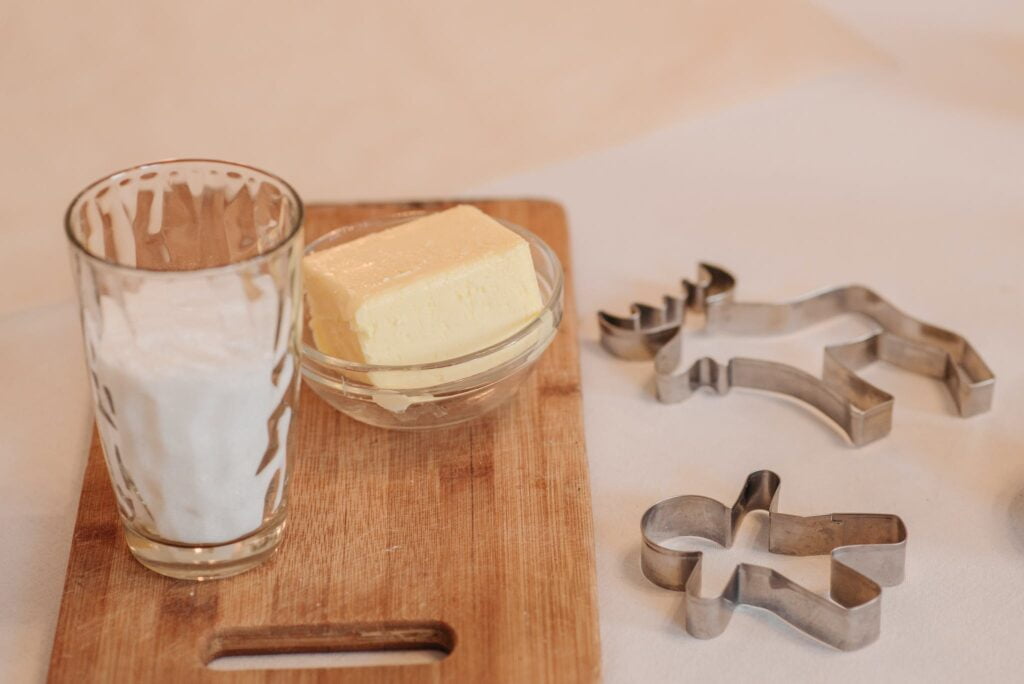
Dairy products can contain hormones that trigger breakouts and inflammation, both of which can contribute to the aging process.
Negative Effects:
- Can increase the production of sebum, leading to breakouts and acne.
- Promotes inflammation, accelerating the appearance of fine lines and wrinkles.
- May cause uneven skin tone or redness.
Healthier Alternatives:
- Switch to plant-based milk alternatives like almond, oat, or soy milk.
- Choose dairy-free cheeses and yogurts.
- Focus on calcium-rich plant-based foods like leafy greens and fortified plant milks.
A study found a strong correlation between dairy consumption and acne, which can leave behind scars and accelerate skin aging.
9. White Bread: The Blood Sugar Spike
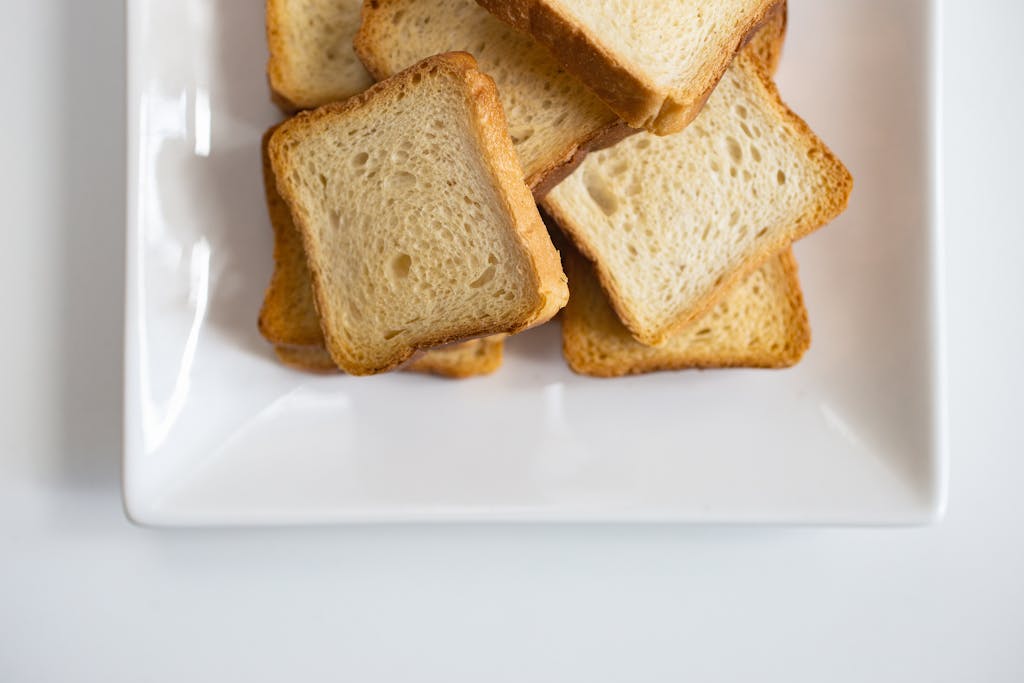
White bread and other refined carbs have a high glycemic index, which means they cause blood sugar levels to spike. As a result, they contribute to glycation and the breakdown of collagen.
Negative Effects:
- Causes spikes in blood sugar, which damages collagen through glycation.
- Leads to inflammation, which accelerates the formation of wrinkles.
- Can result in loss of skin elasticity over time.
Healthier Alternatives:
- Choose whole grain or sprouted grain bread.
- Opt for quinoa, brown rice, or other whole grains.
- Use whole wheat or almond flour when baking.
10. Margarine: Hidden Trans Fats
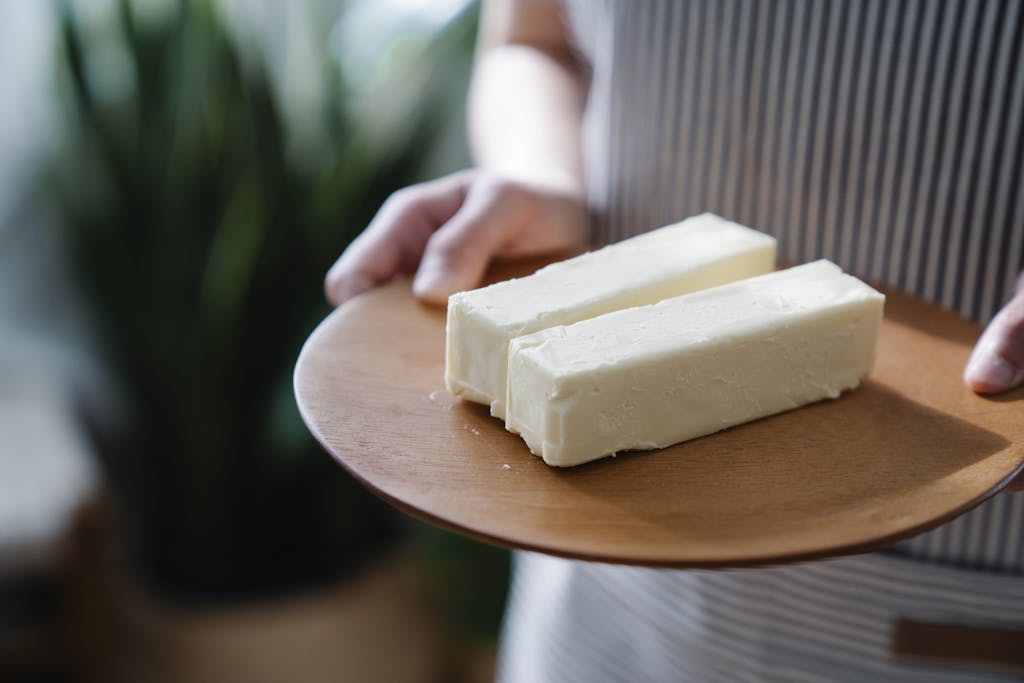
Margarine may seem like a healthier alternative to butter, but it often contains trans fats, which are notorious for causing inflammation. Inflammation is one of the key drivers of skin aging.
Negative Effects:
- Contains trans fats that promote inflammation and oxidative stress.
- Damages collagen and leads to the loss of skin elasticity.
- Contributes to clogged arteries, reducing skin’s natural glow.
Healthier Alternatives:
- Use real butter in moderation, preferably grass-fed.
- Opt for avocado oil or olive oil as spreads or for cooking.
- Try plant-based butter alternatives made from nuts or seeds.
11. Caffeine: Dehydration and Dullness

Too much caffeine can dehydrate your skin, making fine lines and wrinkles more visible. It also reduces your skin’s natural glow and can cause puffiness.
Negative Effects:
- Dehydrates the skin, emphasizing wrinkles and fine lines.
- Contributes to dullness and uneven skin tone.
- Can lead to puffiness, especially around the eyes.
Healthier Alternatives:
- Limit caffeine intake and replace it with herbal teas or decaffeinated coffee.
- Drink plenty of water to stay hydrated throughout the day.
- Opt for green tea, which has skin-boosting antioxidants like catechins.
Research shows that caffeine, in excess, contributes to skin dehydration and increases the visibility of fine lines.
12. Soda: A Sugar and Acid Double Whammy
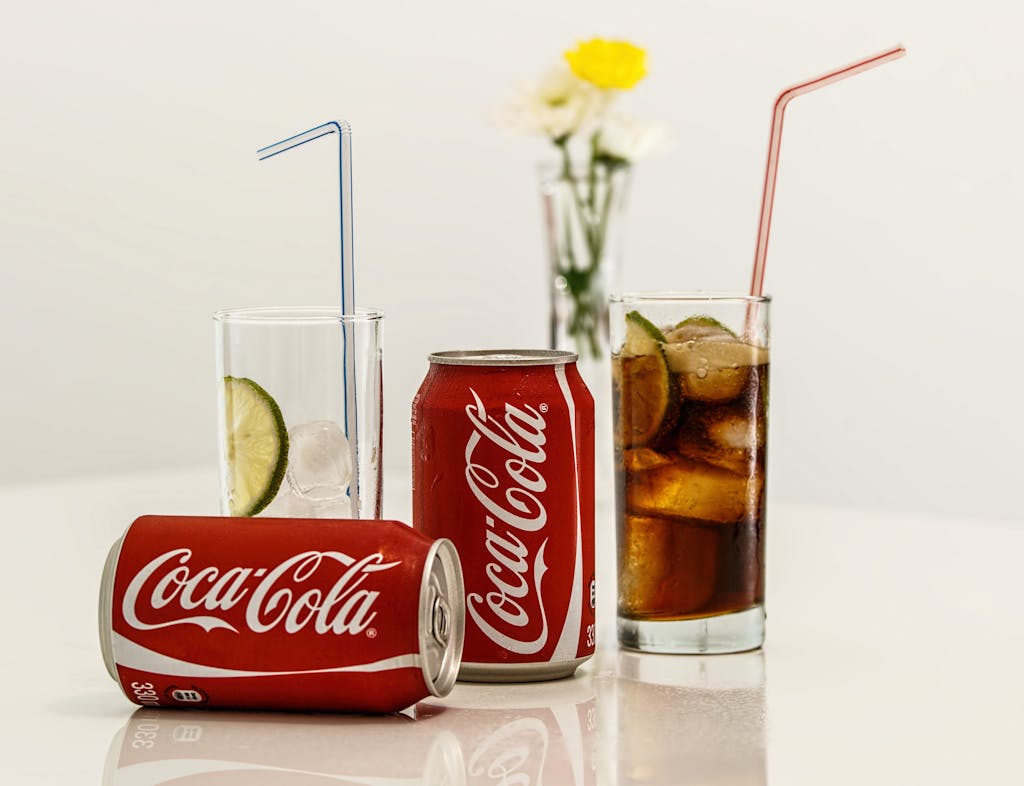
Soda is packed with both sugar and phosphoric acid, both of which can accelerate the aging process. The acid strips away enamel from your teeth, making your smile appear older, while the sugar promotes glycation.
Negative Effects:
- High sugar content accelerates glycation, damaging skin’s structural proteins.
- Phosphoric acid erodes tooth enamel, contributing to an older appearance.
- Promotes dehydration and dull, tired-looking skin.
Healthier Alternatives:
- Replace soda with sparkling water flavored with natural fruit extracts.
- Drink herbal iced teas with no added sugars.
- Stay hydrated with water and add slices of citrus or cucumber for flavor.
A study found that regular soda consumption is associated with accelerated biological aging, as measured by telomere length.
Solving the Problem
Reducing the effects of these aging ingredients doesn’t have to be daunting. Here are practical strategies to help cut back or eliminate these foods from your diet:
- Gradual Reduction: Start by reducing your intake of each ingredient gradually, so the changes are sustainable. For example, if you consume soda daily, try cutting it down to every other day and replace it with sparkling water.
- Mindful Meal Prep: Prepare meals at home to have more control over the ingredients. Use whole, unprocessed foods to limit exposure to additives like trans fats, sugar, and nitrates.
- Read Labels: Learn to read food labels to spot hidden sugars, artificial sweeteners, and trans fats. This is especially important for processed foods, where these ingredients are common.
- Hydrate: Drink plenty of water to help counteract the dehydrating effects of ingredients like caffeine, alcohol, and sodium. Hydration also helps to maintain skin elasticity and combat dryness.
- Healthy Swaps: Replace problematic ingredients with healthier alternatives, such as swapping refined carbs for whole grains, using natural sweeteners instead of sugar, and choosing olive oil instead of margarine.
- Moderation is Key: Some of these ingredients, like caffeine or alcohol, may be fine in small amounts. The key is moderation. Enjoy a glass of wine or a cup of coffee, but balance it with plenty of water and nutrient-rich foods.
Conclusion
The food we eat plays a pivotal role in how we age, and by avoiding or reducing these 12 ingredients, you can keep your skin looking youthful and vibrant. Remember, it’s about creating balance and making healthier choices that support long-term skin health.
Related Articles
- This 50-Year-Old’s Skin Looks 25—Here’s Her 4-Ingredient Anti-Aging Formula
- Top 10 Skin Tightening Creams Recommended by Dermatologists
- The Secret to Reversing Age-Related Skin Damage—#1 Works at the Cellular Level
- How to Tighten Loose Skin After Weight Loss Naturally
- Top 4 Anti-Aging Hacks Dermatologists Swear By—#2 Boosts Collagen Naturally
- Building Collagen Naturally: A Guide to Plant-Based Protein Peptides
- Snail Mucin: How Snail Slime is Revolutionizing Skincare
- Building Collagen Naturally: A Guide to Plant-Based Protein Peptides
- Fulvic Acid Unveiled: Unlocking the Fountain of Youth Naturally!



